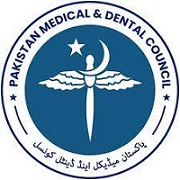KNOWLEDGE, ATITUDE AND PRACTICE AMONG DOCTORS REGARDING COVID-19 TRANSMISSION IN DHQ HOSPITAL, NAROWAL
Abstract
KNOWLEDGE, ATITUDE AND PRACTICE AMONG DOCTORS REGARDING COVID-19 TRANSMISSION IN DHQ HOSPITAL, NAROWAL
Muhammad Tariq1
1 District Health Officer, Narowal
ABSTRACT
BACKGROUND
Corona virus disease-19 (COVID-19) has highlighted vulnerability to pandemics with significant impact on various sectors. Health care workers (HCWs) are likely to become infected as a result of inadequate knowledge, incorrect attitudes and practices. Given the severity of the epidemic and the necessity of doctors battling COVID-19 with limited resources in Pakistan, it was necessary to examine their knowledge, attitude and practices.
OBJECTIVE:
To determine knowledge, attitudes and practices (KAP) among doctors working in District Headquarter Hospital (DHQ) Hospital, Narowal regarding COVID-19 infection.
METHODS:
This descriptive cross-sectional survey was conducted in District Headquarters Hospital (DHQ) Narowal for a period of six months from 26th September 2021 to 26th February 2022. Questionnaire was divided into three components and gathered information about demographic data, knowledge of COVID-19 and their practice section that involves steps taken by the participant to prevent contracting the infection and data was analyzed.
RESULTS:
In this study comprising of 382 doctors as participants, 351 (91.9%) participants were in 25–35 years age range while 21 (5.5%) participants were between 35-45 years and 10 (2.6%) were > 45 years of age. Out of 382 participants, 209 (54.75%) were males and 173 (45.3%) were females. 263 (68.8%) reside in rural areas while 119(31.3%) had urban dwelling. According to duration of service, 191 (50% ) respondents had service duration of 0-5 years, followed by 99 participants (25.9%) having service length of 6-10 years, while 51(13.5%) of 11-15 years, 23 (6.02%) of 16-20 years & 18 (4.71%) of > 20 years. 89.3% have monthly income less than 150,000/- Pakistani rupees while 10.7% receive monthly salary above 1.5 lac rupees. 100 (47.8%) male doctors and 80 (46.2%) female doctors stated that their major source of information regarding COVID-19 transmission and precautionary measures was television whereas 80 (38.3%) male doctors and 69 (39.9%) female doctors had internet as major source of information. Results showed that mean knowledge score of female doctors was higher as compared to male doctors (11.91±.718 vs.11.97±.184). 100% doctors had good knowledge and >9 5% doctors possess positive attitude and have adopted safety practices to protect themselves from COVID-19 infection. Results also showed that mean attitude score of female doctors was higher as compared to male doctors.
CONCLUSION:
Participants indicated high level of awareness, optimistic attitude and appropriate practices observed during Covid-19 pandemic. Educated people are more likely to believe the scientific facts thus more compliance with preventive measures. Findings of this study might serve as baseline for planning campaigns at National level to create awareness among general masses which would help them in adopting preventive measures for better containment of Covid-19.
KEY WORDS:
COVID-19, Pandemic, Awareness, Attitude, Practices, Healthcare providers, Narowal






